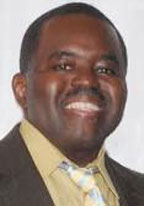
What Would Dr. Martin Luther King, Jr. Do with Trump’s Lawlessness?
By Roger Caldwell
Dr. King was murdered by James Earl Ray on April 4, 1968, in Memphis Tennessee, at the Lorraine Motel. Most family members, close advisors, and supporters believe Dr. King’s death was a planned plot authorized by the American intelligence community to end his life. There are many theories and conspiracies on why Dr. King was killed, but from the very beginning of his mission, he understood that changing American injustice could cost him his life.
Dr. King was a great speaker and political operational genius who galvanized and mobilized the African American community in America demanding their civil rights based on the United States constitution. He focused on American injustice as it related to the political, educational, and social status of Black people.
King’s political strategy was to transform an entire society with tactics of nonviolence and civil disobedience inspired by nonviolence activism of Mahatma Gandhi. Many radical Blacks argued that America was a racist and violent country and the only way to change a society was through bloodshed.
But King believed in his Christian principles, and the American justice system. During his lifetime, King made great achievements, such as being awarded the Nobel Peace Prize, forcing Congress and the president to implement the Civil Rights Act in 1964, and the Voting Rights Act in 1965, the Montgomery Bus Boycott, and the March on Washington in 1963. He was a disruptor, a change agent, and his vision and strategy revolutionized America.
“You may well ask. Why direct action? Why sit-ins, marches etc.? Isn’t negotiation a better path? You are exactly right in your call for negotiation. Indeed, this is the purpose of direct action. Nonviolent direct action seeks to create such a crisis and establish such creative tension that a community that has constantly refused to negotiate is forced to confront the issue,” written in a letter from Birmingham Jail-Dr. Martin Luther King, Jr.
In 2018, for Blacks in America, there is no crisis they think, and the majority of us see no reason for direct action. Some of us have money in the bank, a mortgage to pay, a nice vehicle to drive, and consumed with paying our bills.
With the election of Donald Trump, Black Americans are no longer a priority or a significant culture and community in the scheme of things in America. We are essentially invisible and there is a roll back of many of the legal rights afforded to our community under President Obama and other presidents.
Fifty (50) years later the question must be raised, “What would Dr. King do?”
In order to answer this question, it is essential to understand why King risked his life for1,300 Black sanitation workers in Memphis. It was 1968, and all the sanitation workers were Black, and made 65 cents an hour, with no overtime pay, no paid sick time, and on-the-job injuries could result in an employee losing his/her job.
Two sanitation workers were killed on the job, and the Memphis Department of Public Works refused to compensate their families. This resulted in all the workers walking off the job, and Mayor Henry Loeb refused the demands of the sanitation workers union.
Once King was aware of the injustice in Memphis, he joined the union’s fight for justice with direct action and demonstrations. The mayor declared martial law, and the National Guard was called in.
On April 3, King preached his famously “Mountain-top speech” and he was killed the next day. Where ever there was injustice, King took action and he was willing to fight for change.
Blacks in 2018 in America must organize, mobilize and fight for change with direct action. We must use Dr. King’s political, legal, strategies, by engaging Black churches/organizations, and using tactics of nonviolence and civil disobedience – because we are still in crisis after 50 years.




Be the first to comment